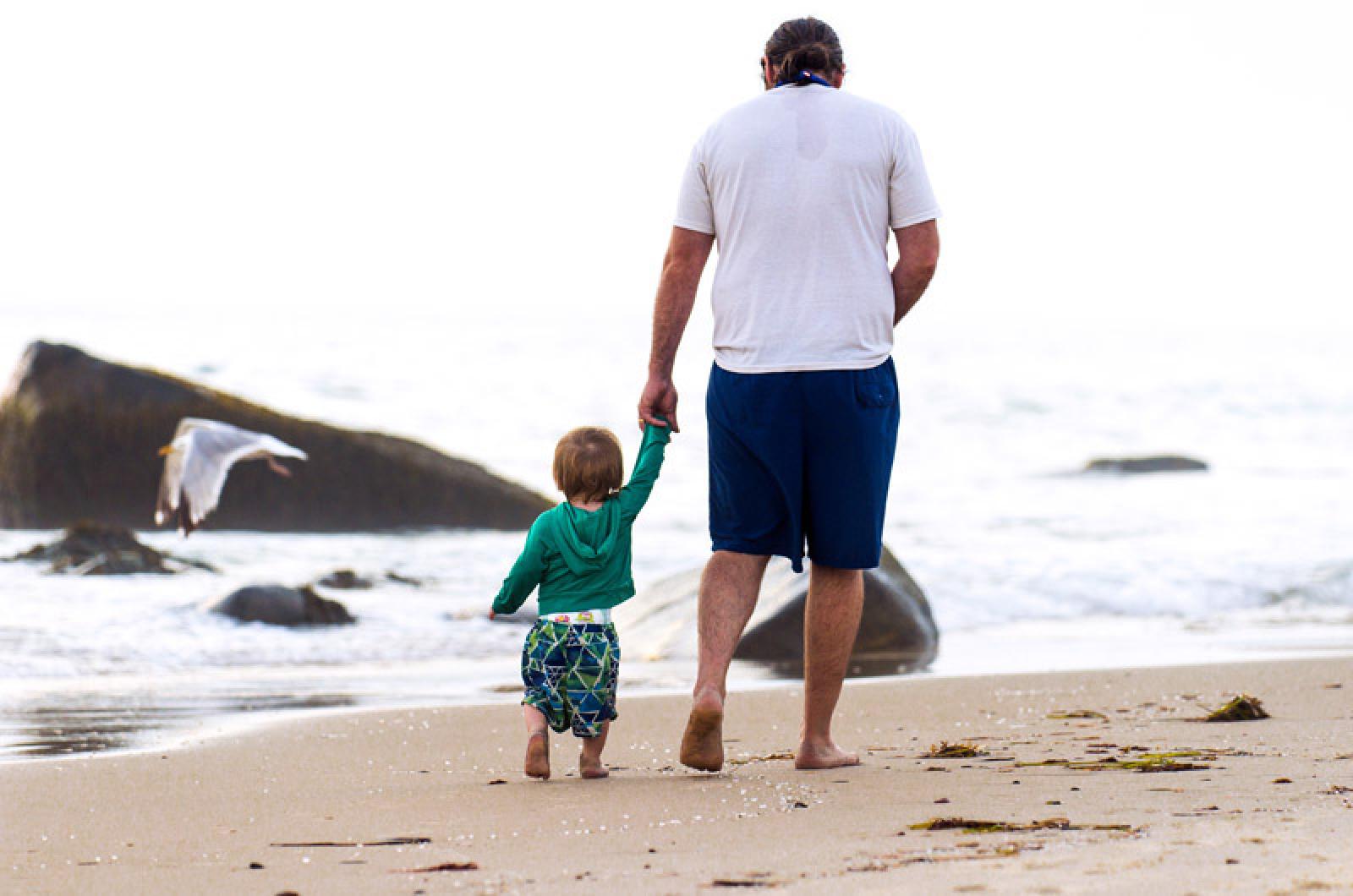I had long forgotten the tingling feeling of cool, wet grass between my toes in summer. It was a time when nothing seemed more natural than donning a bathing suit to run through a lawn sprinkler to cool off. No one in my neighborhood had a swimming pool so we improvised. Drinking water from a garden hose was another treasured rite of summer. That glorious time would be brief, maybe a few summers before it seemed hopelessly childish and left behind.
Shortly after I moved to the Island, I met my new neighbors, recent transplants from New York city like me. They were passionate about gardening, fishing out of old, often leaky wooden canoes and eating large dinners at a table set for 12 or more. Every day seemed like a celebration and I became a welcome member of that extended clan. My new neighbors always went barefoot in summer.
After a few seasons a well-worn path developed through the woods between our two houses. Often, our meals were often composed entirely of things we grew, foraged, caught, or animals we raised for meat. I wondered why two grown people always seemed to be barefoot and I decided to give it a try when the following summer arrived.
The transformation was immediate. The lawn felt wonderful, the pea stone or scallop shell driveway felt quite horrible and the woodland path that had been created by us alone was a mixture of delightful and downright perilous depending on where you planted your feet. A bumper crop of Chilmark poison ivy was another feature you had to look out for. But despite the hazards, I was hooked. I gave up on shoes entirely. My soles soon hardened to the point where I could run through the woods barefoot with ease. Even the scorching asphalt in the Menemsha parking lot didn’t seem so bad.
We fished, gardened, ate, and drank our way through that summer with delight. The sensations of few brief months were enhanced by the sensitive nerve endings in the newly liberated soles of my feet. Feelings as distinct and different as a carpet of dry pine needles underneath a shady stand of white pine, spongy sphagnum moss along the adjacent stream, cool wet sand, woodland leaf litter, even the polished oak boards of my kitchen floor offered up a different experience that had been missing before. I was able to run up and down the jetty rocks in Menemsha while chasing bonito as surefooted as a mountain goat and speaking of goats, I walked my small herd of dairy goats every afternoon to forage along another path we made deep into the woods.
Without shoes, my surroundings took on a much wider range of sensations that connected me to the environment in new and vibrant ways. Going barefoot awakened a dormant sense that seemed to enhance all the others.
When summer ended, I retrieved a pair of unused sneakers I had left out on the Menemsha jetty all season and I concluded that the fall of mankind had nothing to do with eating a forbidden apple. It was the result of wearing shoes. Once shod, you were no longer able to feel any deep connections to your surroundings. You were rendered senseless, disconnected from nature, apart, oblivious, unaware and a threat to the natural order of things.
I didn’t know it then, but that wonderful shoeless summer was never to be repeated. The demands of earning a living while building a house mostly by myself took precedence. The shore fishing for bonito wasn’t nearly as good in the subsequent years and I saw my neighbors much less. Years passed before I attempted to walk up the hill to their house, but the path between our properties that had joined our lives had simply vanished, obscured by a tangle of bull briars, fallen pitch pines and chest-high bushes.
Now that I am edging closer and closer to the 70-year mark I spend more time reflecting on the past. That beautiful summer taught me a lesson about things I had lost along the way. I’m not about to start running through a lawn sprinkler again, but I hold more tightly to the memory of spring mornings when the air smelled of lilac and hyacinth and was filled with birdsong. Walking to elementary school, cutting through neighbor’s yards under a sun-dappled canopy of tall trees left me flushed with wonder and awe at how beautiful it was to be alive.
I liked to imagine that those birds in the trees above were speaking to me, but it took all these years to finally translate it. Unlike Poe’s raven, it was something much more essential and valuable. A small boy risks losing so much along the path of life, but now when I conjure that birdsong in my mind once more calling out to me on my way to school, I can finally understand its simple message. They sang that same song over and over each beautiful morning; “Remember This! Remember This!”
Robert Skydell lives in Granada, Nicaragua.




Comments (7)
Comments
Comment policy »